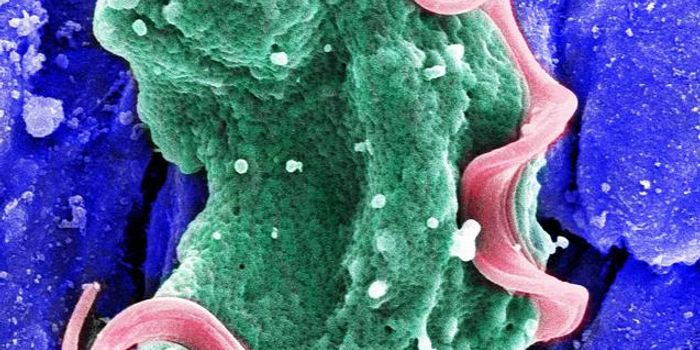A Specific Microbe is Associated with Worsening Lupus
We are closely connected to the microbes in our gastrointestinal tract. They have a significant influence on various aspects of our health, including the immune system. Research has also associated imbalances in the gut microbiome, or specific gut microbes, to a wide variety of illnesses. Scientists have now linked lupus to a specific bacterium known as segmented filamentous bacteria (SFB). In a mouse model, SFB had negative effects on a mouse model of lupus nephritis. The findings have been published in Scientific Reports.
It's estimated that about five million people worldwide have lupus. The incidence of lupus can vary widely by country, with the highest rates in North America, and the lowest rates in Africa, Northern Australia, and Ukraine. Women are affected at higher rates then men, and the rate appears to be rising over time.
Any given patient may have several different symptoms of lupus, which could include a facial rash, loss of appetite, fatigue, fever, or joint pain. Lupus is an autoimmune disorder in which the internal organs are attacked by the immune system. Genetics, hormones, and environmental conditions are thought to play a role. Mounting evidence is indicating that the microbiome also influences the condition.
"This [latest study] is a major finding, because it provides a basis for future studies that will examine the effects of interventions that target the gut microbiota in the management of lupus," said lead study author Dr. Wael Jarjour of The Ohio State University Wexner Medical Center and College of Medicine.
In this work, the researchers used a mouse model of lupus nephritis, in which the kidneys are damaged by excessive levels of cytokines, similar to what's been observed in some lupus patients. When the mice were exposed to SFB, their kidney lesions got much worse. The bacterium seemed to make the intestinal wall more prone to leakage. So-called leaky gut, in which the microbes and the molecules they produce aren't properly sequestered in the gastrointestinal tract, has been associated with several autoimmune conditions. Those microorganisms and their associated molecules can enter circulation and stimulate the immune system.
SFB affected other gut bacteria in the microbiome of the mouse model as well, and it became imbalanced, Jarjour noted.
Now, the researchers are planning to investigate whether removing SFB has a positive effect on the disease. Findings from that research could establish a basis for clinical research, added Jarjour.
Sources: The Ohio State University, Scientific Reports









